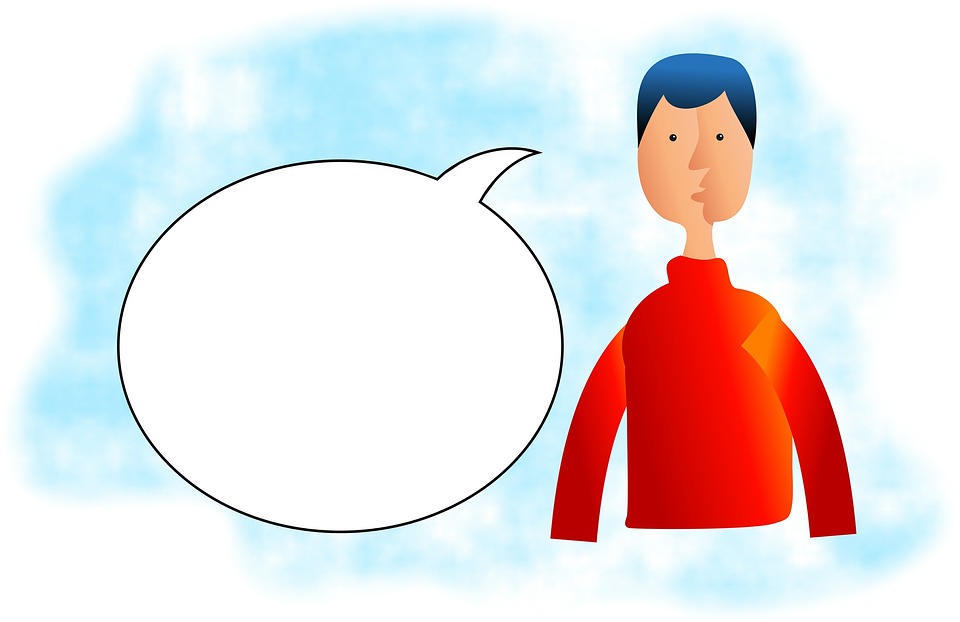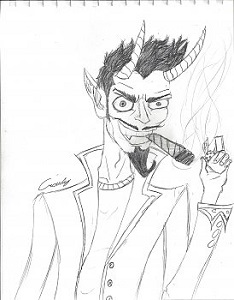The Metaphorical and the Conceit (II) – by R.H. Peat
The Metaphorical And The Conceit (part II)
A Poetic Commentary:
The Double Compound Metaphor And Mr. MacLeish
You know this already, but I’m going to reiterate like talking to a novice about hooks and lines. Let me take you on a fishing trip for the big one that got away. The one you had in the class creel-basket a million times, back when knee-high didn’t have a gray beard or a limp with a cane. Poetry lives on suggestion and innuendo; its Metaphors. As the poet in you brings the fire forward toward the fireplace the hearth is cleared away. You are to go and seed the dark depths with your torch. You are the fire giver; don’t let the flame go out. Light up the night and dance for the lit-up darkness.
Don’t hand a plate of sweet cookies to anyone. Tell it all, by showing them the crumbs not by shoving gingersnap sermons in their faces. If there are cookies in the other room, point them in the right direction to find the platter, but let them go find the cookies on their own. Besides their cookies aren’t the same as your cookies; You like chocolate chip, and they like raisin oatmeal. So let them find their raisin oatmeal, while looking at your chocolate chip. It’s that simple.
Screw on your fluorescent socks and take a walk in the state park at night. Tell everyone you’re following the footsteps of a saint on his way to the outhouse. Always tear at the useless flab in a poem. But don’t tear at it so much you don’t have any bone left. And carve a perfect face in the melting ice when everything is too cold to bare. Let your words seep into the depths of the earth that is the reader. Don’t splash them with lakes of icy water. The compound mask of two compared metaphors will take your reader deeper into the known and unknown snow than you could possibly ever take anyone within a sermon. Remember even the iceberg has more under than above the surface. Besides the figurative speech of the double compound metaphor is the timeless language. That’s what poetry is all about in the snowdrift—Metaphor banked along the barn and fence-line. That’s what it does to the strung out wire—the being-ness of being. Chop, Chop, Chop-chop— separating spirit from the body. The intention of the heart from the literal words. It finds the dynamic of the waterless swimmer in the nameless song of birds.
You are getting the bigger picture when the tomato worm says to your red splitting skin: “You are actually starting to get real close to this poem’s green guts. It’s dancing in my moth heart, but you’re using long twisted phases instead of simple leafy words. The twig phases should become the winding green lines, not the budding metaphors in the line’s dense jungle greenness. For then the buds will become the ripened fruit, hanging plump and red, wanting to be picked. Eat the vine away slowly with just a few well chosen words along the lines. Two bites here in a metaphor, and two words there nibbled along the twisted stem. The double compound metaphor is the worm thinking its way into the cocoon of wound silk. One line following the other. Wound around the body this thin thread will take you all the way to mars and back again.”
Behold what is below the frozen surface of a dreaming-lake in winter.
I hold up an example on a toothpick; its Archibald’s poem. The one olive from the metaphoric martini glass. I am drunk just looking at its red dot of pimento surrounded by green olive envelope. Please notice the sunken treasure in one compound image found in each two lines. You really don’t need four to six sail boats to cross the one depth of this ocean. There is a wealth to be had in using the double compound metaphor within any poem. Take a look at these double compounded words placed into paired lines, the poem’s 24 lines made into 12 metaphorical couplets, then divided into 3 metaphorical sections of 4 couplets each. And its called “Ars Poetica,” by Archibald MacLeish. The sandwich made by Sandwich himself.
Can you fall backward of just a moment into the clouds. That old fish still hooked on your held line; “The Salmon are running.” These metaphors are talking about the very thing that they are up stream. It’s a mirror before a mirror. A view of the lake from the top and the bottom simultaneously. Reflection back into itself. The same water poured into the rusty bucket from end to beginning. This is sweet liquid profoundness. It is a sock turned inside out over your hand. Looking at its insides, form the outside. This is writing the poetic-well at its best; a constant drink from the dipper, to no end. Taste it’s clear infinity. Lick its unseen charred bones hung over the rail in the smoke; Know these filets as well as the placed stones of words. They will snap you when you are not looking; fish tail slap, brittle stick and you will find your lamenting tears in the lost tin cup sitting around the campfire. Here is how his still-water starts; “understand how to close the door behind you.” NOW—Just where have you heard that before. And you thought mom wasn’t a poet to contend with in the dirty sink of life.
The ground is fresh and muddy here. It is flesh cracking in the sun. Dance with it as a naked lover. Lines of pure magic, pure silver touch, pure inversion, pure conversion; let it ooze under you supple skin. Let its thorn prick your fingertip and then taste your sweet poet blood.
Let the sky melt into your wide eyes, and remove it’s silk gown before you. I’m talking the lover’s inner landscape here as cut cloth for a dress. See how the pattern shifts for the seams that are sewn so tightly together. Not the external ones; but the internal comprehension of the scissors crossing thousands of snipped threads. Go for the buried sap of consciousness beneath the printed tree bark upon the fabric. Not the rough exterior of meaning, but the blood bite in feeling where the tick has bored into your hide beneath the worn costume. The center of your heart is liquid like silvery mercury in this toxic dreaming.
Archibald does it all right here, And very simply and very magically composed with the double compound metaphors strung on his needle. The structure of this poem is a lesson in every way. He starts with 4 metaphorical couplets devoted to the senses with each one containing some sort of silence, He moves to the mirror of the full moon and reflects your image back to you as the man in the moon, and then lastly, tells you the didactic in such a skilled way that it is just totally uncalled for. A position against every cubed grain of salt you’ve ever been taught by the tailor or the cook when crafting poetry. This is just how it is at wedding feasts—transparent silk and lots of music. The perfect wedding dress! It is all invisible ribbons and immaculate lace waiting for the bridegroom. And he gets away with it every time you reread the darn thing.
======================================
Ars Poetica
(by Archibald MacLeish)
A poem should be palpable and mute
As a globed fruit,
Dumb
As old medallions to the thumb,
Silent as the sleeve-worn stone
Of casement ledges where the moss has grown—
A poem should be wordless
As the flight of birds.
—
A poem should be motionless in time
As the moon climbs,
Leaving, as the moon releases
Twig by twig the night-entangled trees,
Leaving, as the moon behind the winter leaves,
Memory by memory the mind—
A poem should be motionless in time
As the moon climbs.
—
A poem should be equal to:
Not true.
For all the history of grief
An empty doorway and a maple leaf.
For love
The leaning grasses and two lights above the sea—
A poem should not mean
But be.
====================================
Hey inject this poem by Archibald into your Lorca-ground-glass flowing blood stream while singing the word “Duende” over and over again. Then you’ll know what I mean by “Dance with it!” at the reception. I’m saying you better kiss the bride, here. Dance with any closure as a lover. Dance with the double compound metaphor as silk upon the innocent body. It is all right hear; a fine piece of good news for every poet to feed upon. Free to all for the taking. But can you see through its clear class and still capture the whole picture window. So “Dance with it!” Dance with your own closing door. He sets you up for his abstracts; and you come out of his poem feeling he’s bent you without you knowing. That he’s bent you before you saw the poem. He bent you when you were not looking, when you wandered into the chapel like a lost seaman with an albatross around your neck. That’s how the abstract ending needs to work within a poem when its done right. I hope I didn’t come across as too preachy in my pajamas. I am just trying to tell the old sea tale like it is. The turtle still in its shell. Maybe how I see the thick closure and the muscular double compound metaphor working inside the depth of a poems ocean. There are many different ways to end a piece. But they are all the gymnast at his or her best dismount from the bars of the metaphorical spin. Full twist and turning sky, then landing square on the mark. If you get my flying drift. So, whatever you do; keep up the good writing. And know part of it has to be fun behind all that work, or you need to stop doing it. So smile a little, cry a little, and laugh a whole lot, so the bears don’t have all the fun at the state park. So if the saint’s shoes fit. Wear them home.
this essay has been published in the past.
© RH Peat 1987
About the author:
RH PEAT lives in California; He’s published his poetry in the USA, New Zealand, Australia, India, England, Canada, and Japan. He’s taught workshops and operated poetry readings in California. He now operates a closed poetry workshop forum for writers on the internet.
Other publications by R.H. Peat on Flashes:
Like a Comet, She is Distance
Bed of Sky
The Metaphorical and the Conceit (1)
The Metaphorical and the Conceit (2)
The Metaphorical and the Conceit (Glossary)
Seeing the Poem’s Depth
Interview with Poet & Artist R.H. Peat









